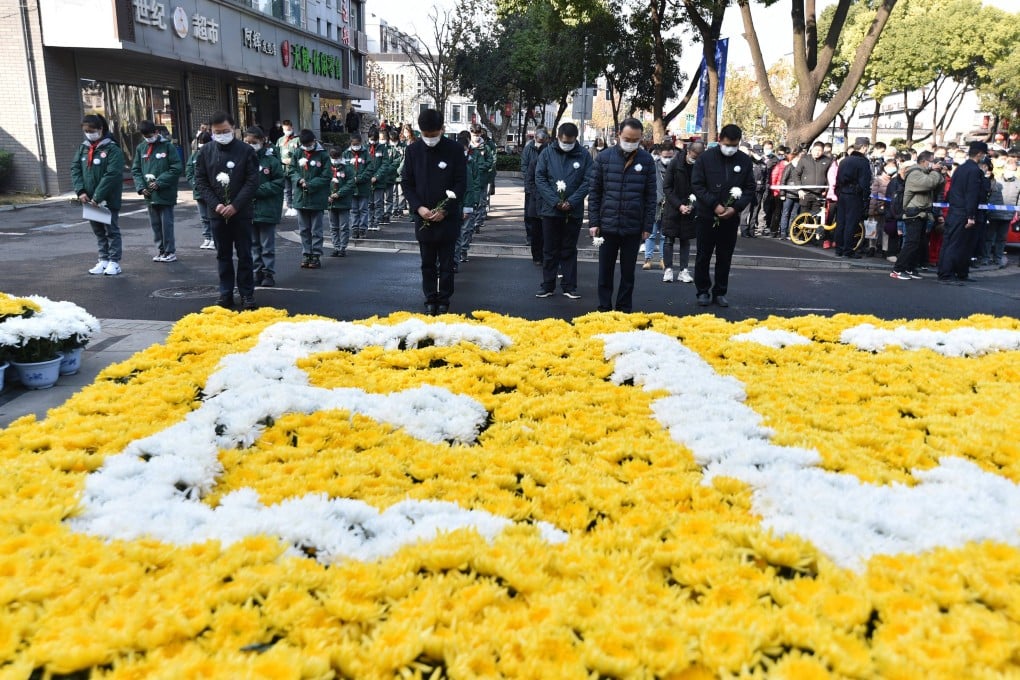China marks 84th anniversary of Nanking massacre amid charged relations with Japan
- ‘We are willing to build a Sino-Japanese relationship that meets the requirements of the new era,’ Vice-Premier Sun Chunlan says
- China estimates more than 300,000 civilians and soldiers died in the six weeks after Japanese troops entered Nanking – a figure disputed by Japan

Speaking at the ceremony, which was broadcast live on state broadcaster CCTV, Sun Chunlan, vice-premier and a Politburo member, said the service showed the will of the Chinese people to learn from history and their unswerving desire to follow a path of peaceful development.
“Only by correctly understanding history can we grasp the way forward. We are willing to build a Sino-Japanese relationship that meets the requirements of the new era … and work with all peace-loving people in the world to build a world of lasting peace and universal security, common prosperity, openness and tolerance, cleanness and beauty,” she said.
The day has always been a source of bitter grievance in China about wartime history. According to China’s official estimate, more than 300,000 civilians and soldiers were killed in the six weeks after Japanese troops entered Nanking, then the national capital, on December 13, 1937.
The number is disputed by Japan, which only concedes that “the killing of a large number of non-combatants, looting and other acts occurred”. Japan says it is difficult to determine precise figures.
